Imagine a world where humans don’t communicate with others. Cold eyes, strict steps, and no emotions. That’s quite the dark tone to imagine, isn’t it?
Now, the good thing is that humans are naturally social creatures, meaning the scenario we just mentioned is nothing short of a hypothetical situation. Being social means that humans love to interact with other human beings, share what they have in common, and even compete in a friendly manner. Thanks to the digital shift of the modern world, we’ve enabled ourselves to interact with others from the comfort of our homes.
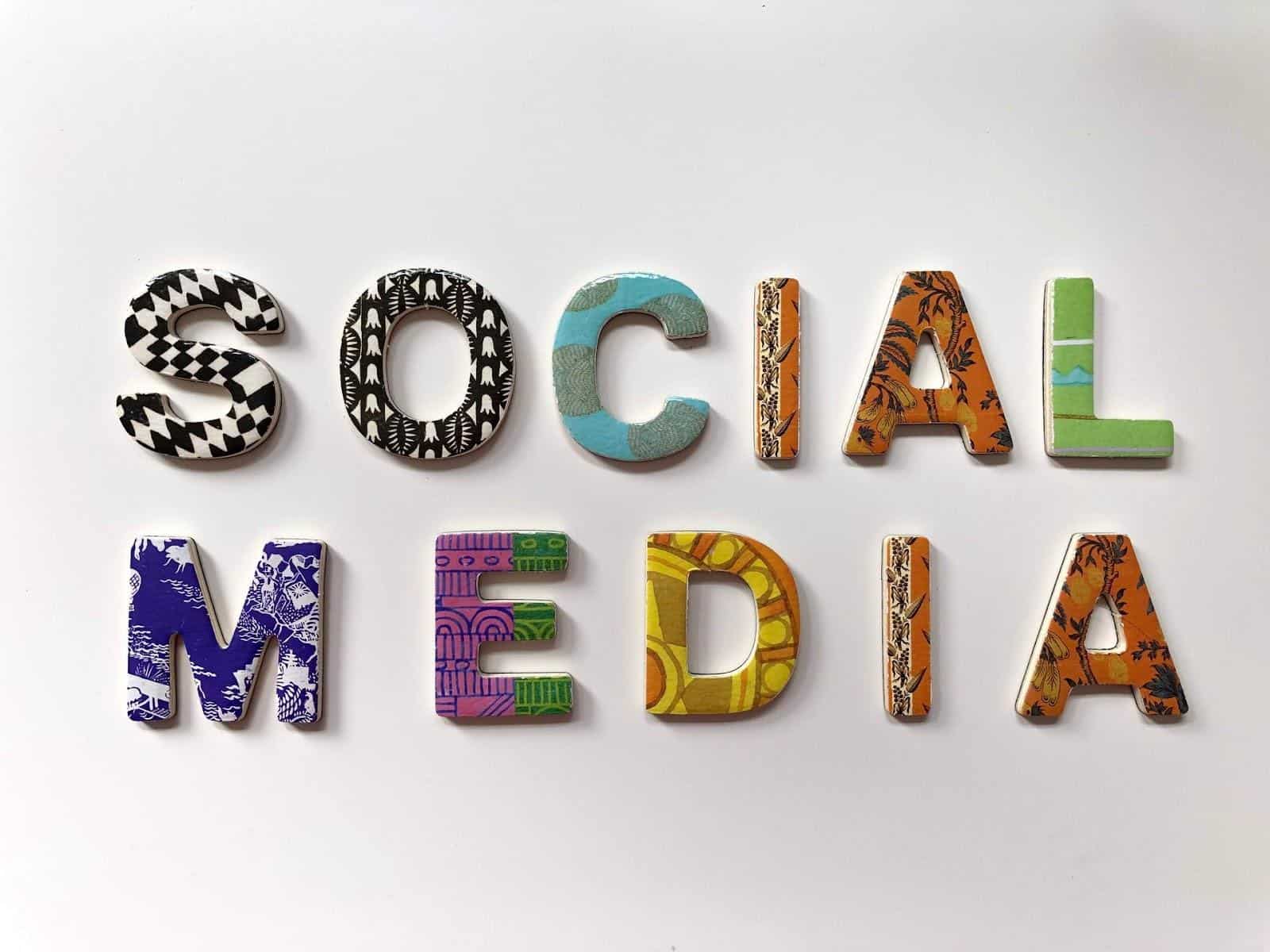
Source: Merakist
Whether it be sharing something unique that we witness, talking about a topic, or even gaining information, social media platforms cover them all. But, as time moves on, we need to shift as well. We cannot rely on the same sites and apps for decades.
Hence, today, we’ve decided to compile and list down six emerging social media platforms that you should know about!
The Rise of Social Media Platforms
Before we jump to the actual list itself, let’s take a slight detour back in time and look at how the term ‘social media’ popped off. So when did it all start, you may ask?
Let’s rewind the clock to almost two decades ago. The first social media site that saw great popularity (reaching the milestone of having a million active monthly users) was MySpace. The platform itself was just as typical as any modern-day social media app. People could sign up, set up their profiles, communicate and share images, journals, etc., with friends who also had profiles on the same platform.
Some programs helped people do the same things (make profiles, upload photos, interact with others), such as the 1997’s Six Degrees. However, the fact that MySpace had such an enormous monthly user base was a first. This event is what many people believe to be the emergence of social media. Although, at the time, social media marketing wasn’t famous as it is now.
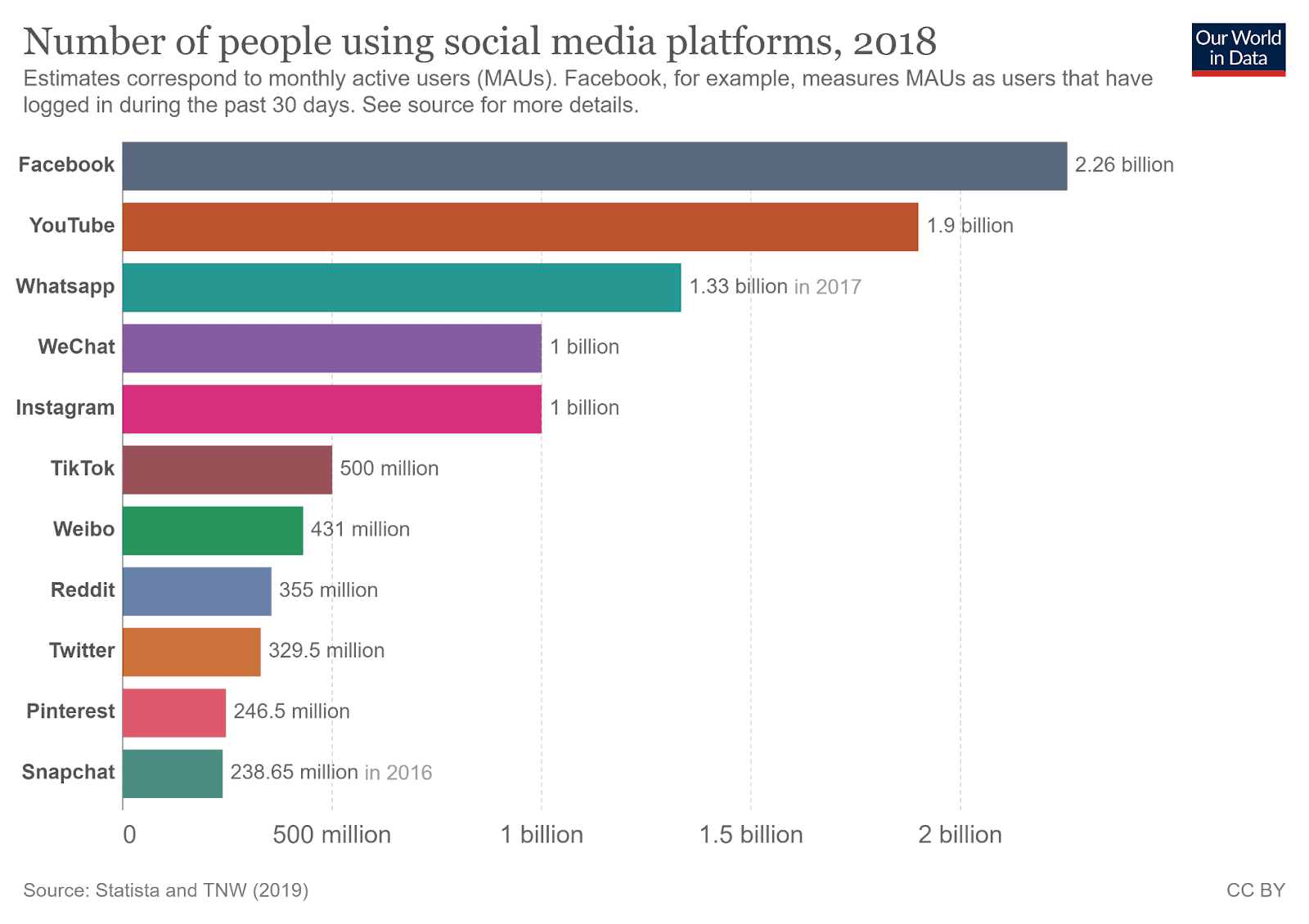
Source: Our World in Data
Well-known modern social media platforms such as YouTube and Facebook took off around 2006-08. These also happen to be the years when MySpace saw more steepness in its numbers, eventually leading them to lose the battle globally against its competitors. With MySpace grabbing such popularity, it was only natural to attract more rivals.
Platforms such as Facebook, however, have been infamous for not applying the best methods to attract and retain their audience (also portrayed in Social Dilemma). These practices have also resulted in the general audience creating a negative impression of social media itself as an idea. Further, studies have stated that there is a link between the way people use social media and depression (directly or indirectly).
This makes it vital for elders to understand and educate the younger generation on how they should operate these tools or when to take a break from them.
Other than the controversies, it’s noteworthy that social media platforms have evolved in allowing people to upload content online. One of the best examples of this is Twitter, where users could not upload images or videos in the early days. However, after 2011, Twitter supported uploading such content; interestingly enough, more than 50% of all content on Twitter is reported to be either images or videos.
Current Emerging Social Media Platforms
Now that we’ve seen how social media platforms have evolved in time and their effects on people, it’s time to visit six emerging social media platforms that have started rising globally. These can also mean you might need to reevaluate your social media strategy entirely.
#1 Ello
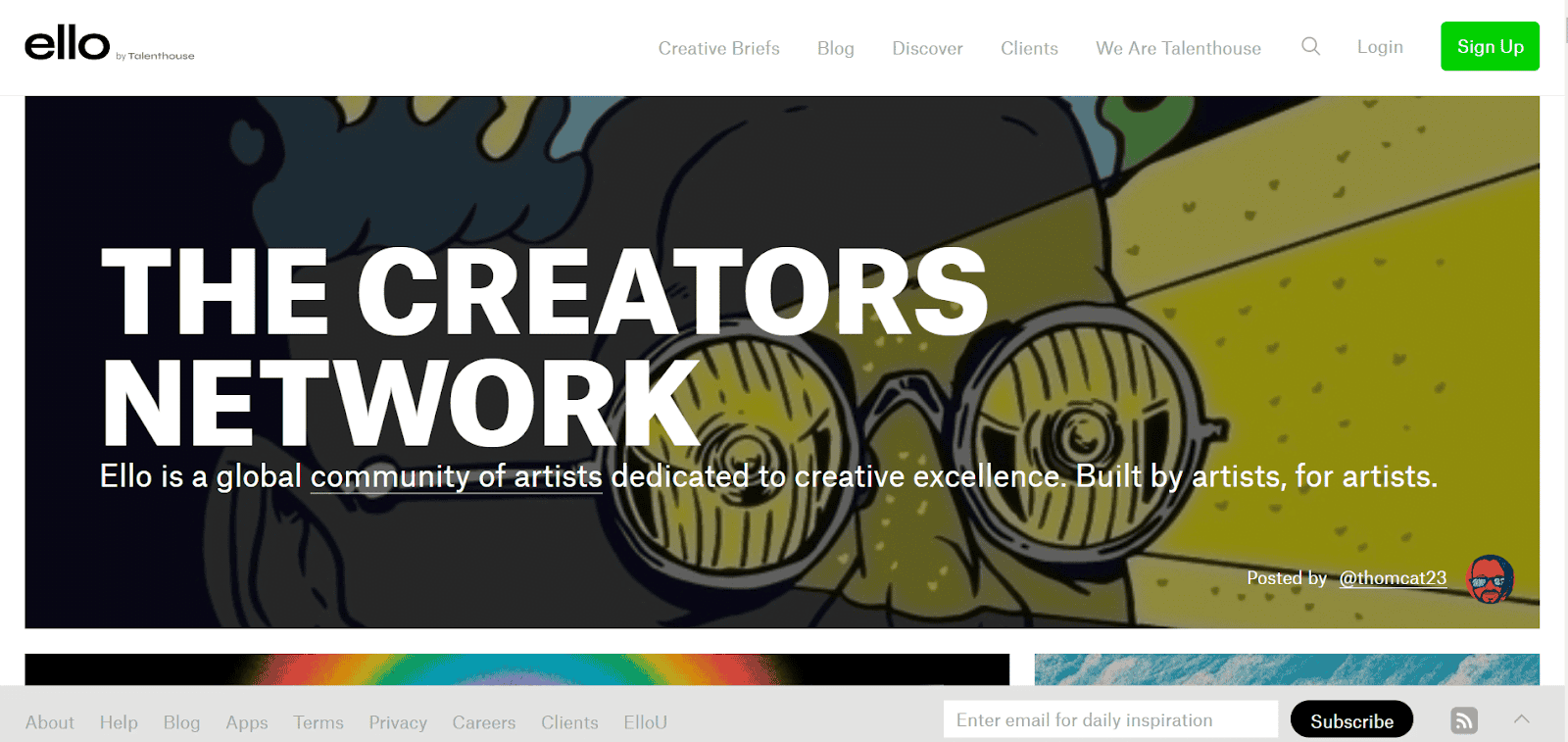
Source: Ello.co
The unsettling concern of internet privacy and data security has several groups shifting to alternative social media platforms. With people disenchanted by the data-threatening policies of social media giants, including Facebook and Twitter, users seem to gravitate toward user-centric platforms more.
Launched in 2014, the social media platform Ello quickly gained fame and was labeled as the “anti-Facebook .”Ello claims to be not only anti-data-collection but also ad-free, which makes the platform distinctive from others in the field.
Now, you might wonder who came up with this somewhat risky idea of not selling advertisements or the data of its users. The creators of Ello- Paul Budnitz and Todd Berger, are the minds behind this business model who wished to bring something new into a highly commercialized social media market. Just like many, the creators of Ello were too annoyed by the constant stuffing of ads and data mining.
Another exciting feature of the platform is that they went for a minimalist design which is quite unconventional compared to the extravagant and brimming advertisements in the land of social media. Many compare Ello to Pinterest for being simple in design and dedicated to creators and fans interested in art, photography, and other similar categories.
Ello wanted to be unique in all forms, even with its layout. Regarding Twitter, they stick to the 140-character limit, and Facebook gives the “See More” option for longer posts. However, with Ello, it still displays the entire post even if it is exceptionally longer.
Key Features:
- Ello is committed to being an ad-free and anti-data collection
- You have the option of collaborating with or hiring creators
- Unlike Facebook’s real-name policy, here, you can choose to go with your desired username
- Ello has an increasing user base of worldwide unique creators for sharing ideas
#2 Discord
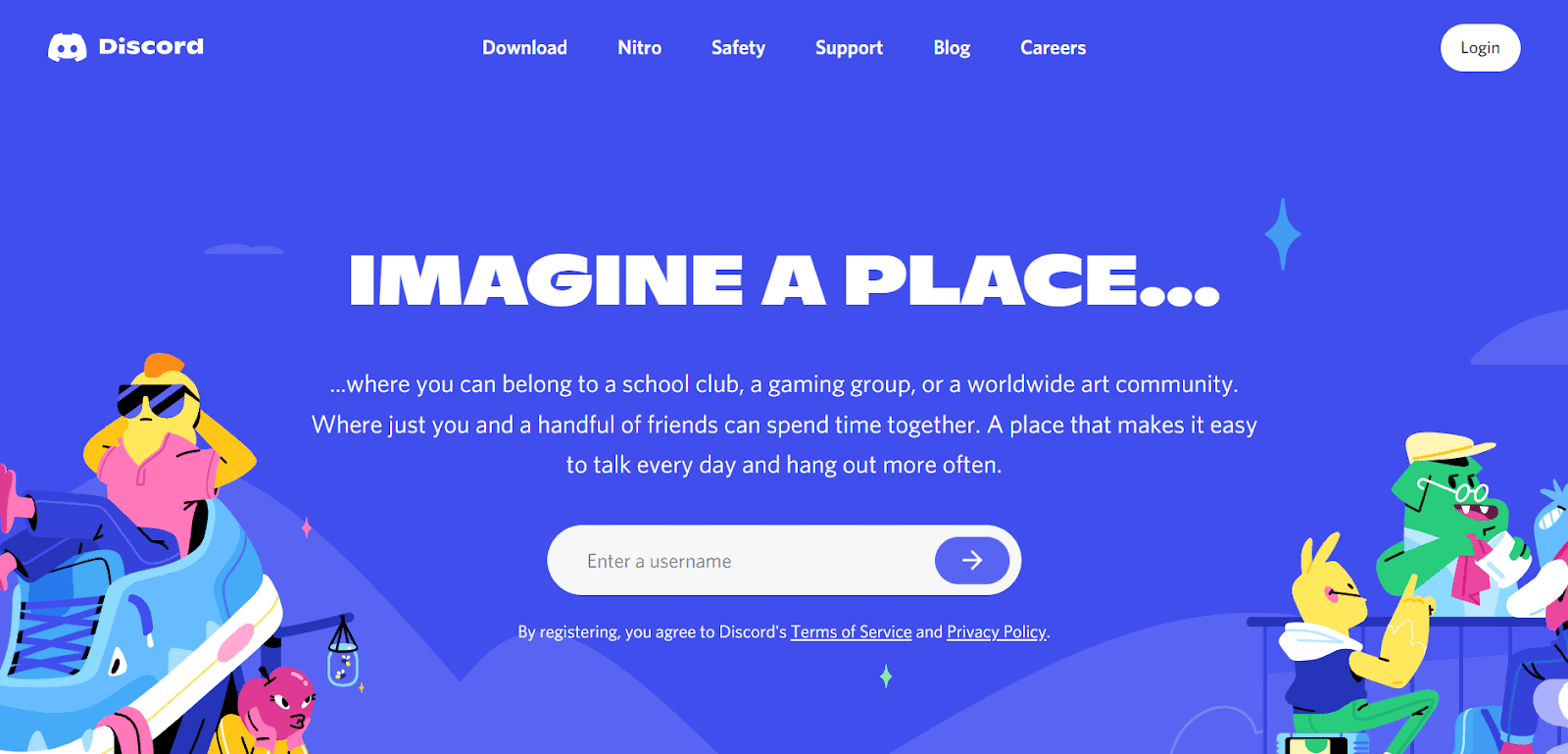
Source: Discord.com
If you’re fond of gaming, then it’s quite rare that you haven’t heard of this platform. Founded in 2015, Discord was initially a niche-focused social media platform aimed at gamers. However, gamers weren’t the only ones who were/are attracted by Discord. Even brands have decided to jump on the bandwagon.
The reason is social media marketing. Brands can create their servers (think of servers as a forum or room of discussion) where followers can enter and talk about the services/products the brand offers. It’s key to note that as of September 2021, Discord has had over 150 million active monthly users. Many communities on Discord rely on gaming servers to provide smooth and reliable communication and gameplay experiences.
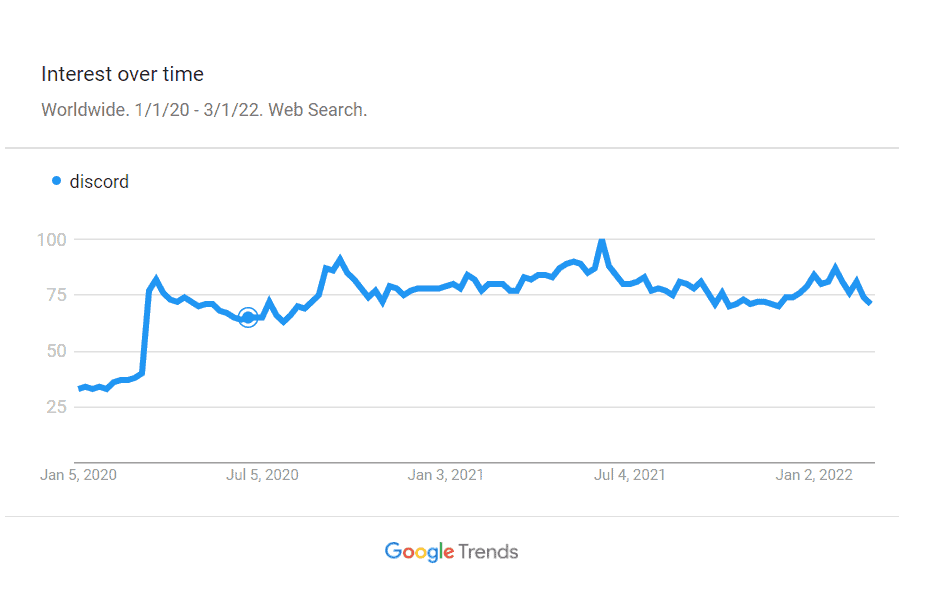
Source: hootsuite.com
The interesting part about Discord is the fact that admins can create ‘channels’ within servers (this is different than a bare metal server). These channels are different areas where people can talk about specific topics. This feature can be user-friendly for newcomers since navigating their desired type of audience isn’t tricky.
Another purpose (and one that we should’ve mentioned more earlier) that Discord serves is the ability to voice chat and stream games directly from the platform. Further, users can send images, audio, videos, and pdf documents in chats. Before you send a PDF, you might want to use a Convert PDF to Word tool to make edits. Being free of all and any ads, Discord can also allow patrons to give honest feedback to the brands they support and even help people find new friends.
Overall, Discord is a great place to meet people of the same interests, chill around and discuss topics you love. The ironic meaning behind its name is quite ingenious too.
Key Features:
- Displays no ads or sponsored content.
- Works great for various uses (promotion, gaming, discussion, debate, voice chat, etc.)
- The channels in a Discord server are straightforward to navigate, making the app user-friendly for all newcomers.
- Discord helps you re-evaluate before clicking on any link to save your device from potential harm.
#3 MeWe
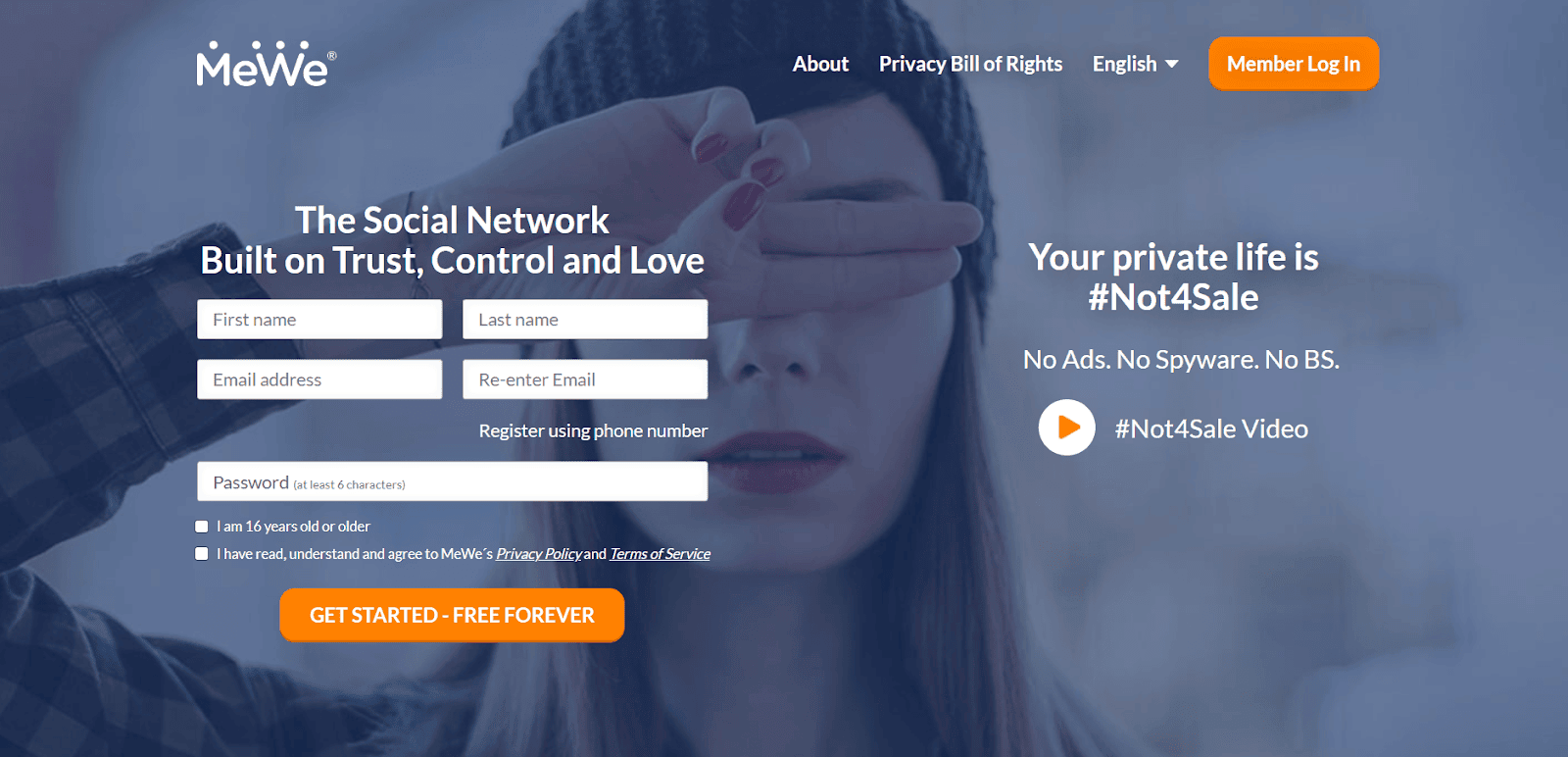
Source: MeWe.com
User privacy, data collection, algorithms, and advertisements have been some of the growing concerns of social media users. This holds more emphasis ever since Facebook was fined in 2019 for exposing users’ data to a political consultancy who misused it. This incident raised significant questions about all social media channels and their methods of collecting user data.
Due to this, many people shifted towards other safer platforms, one of which is MeWe. It’s another “anti-Facebook” social networking app. Their main plan is to provide an ad-free and secure social media channel for users without targeting them with personalized ads or recommendations.
Key Features:
- A simple yet excellent texting app
- There are no ads or sponsored content on this app
- No privacy issues or data sharing of users
- All content is controlled by users and not by algorithms
#4 Nextdoor
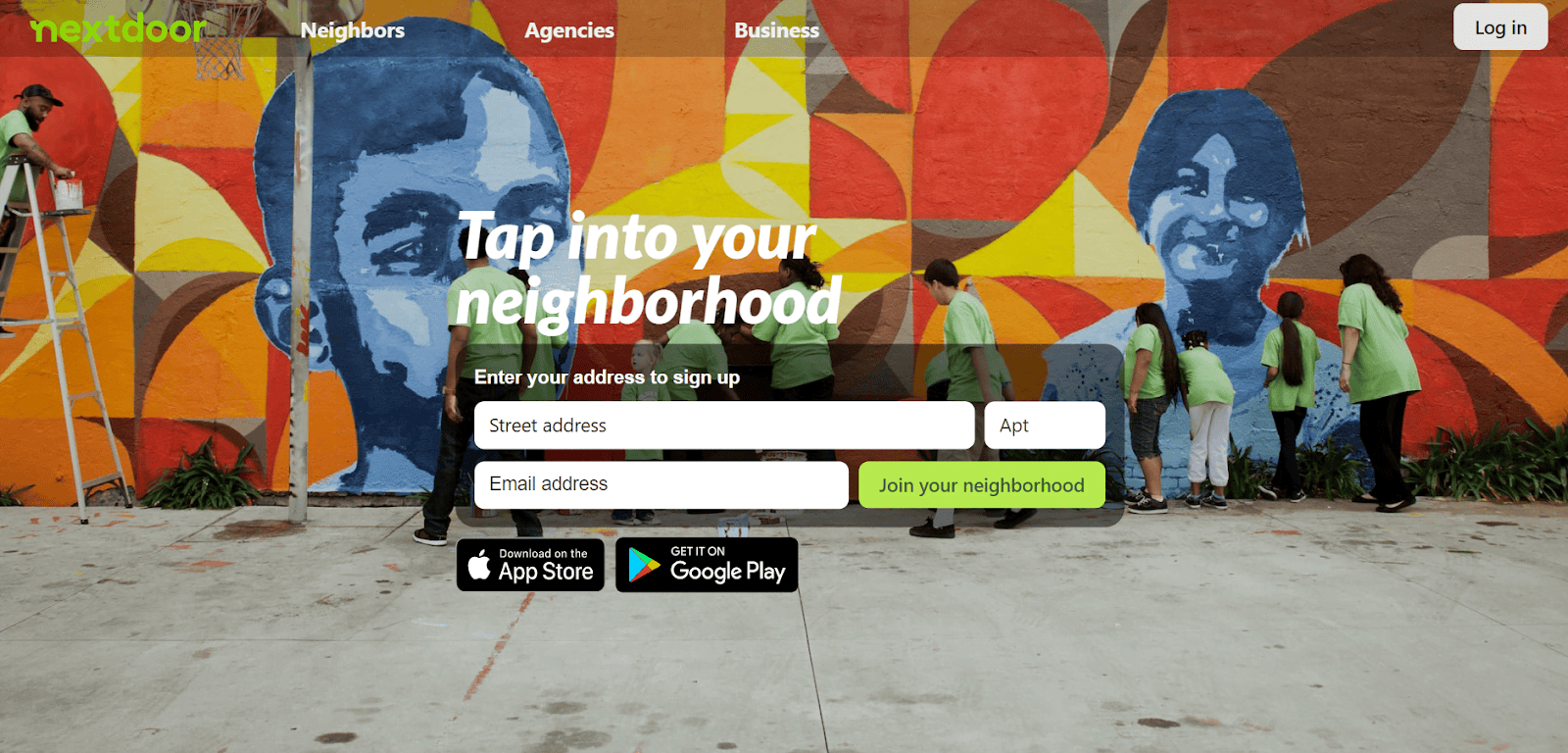
Source: Nextdoor.com
The world is a big place, and getting to know everyone is even more challenging. However, thanks to social media, we can connect with anyone. But wait, how many of you know about your colony neighbors? Well, you can sign up next door, which is a platform made to connect with people residing nearby. In short, it is a simple way to interact with your neighborhood community without talking face-to-face.
Founded in 2008, Nextdoor launched in the United States in 2011. With its growing popularity, it soon began expanding and is now available in 11 countries.
The best part about this app is that you can not only converse with residents, but you can chat with business owners, agencies, or other stores on Nextdoor. If you are planning to start a local business, joining this platform can bring lots of resident traffic to your store!
All you need to do is sign up and confirm your address details, and voila! You can be in touch with people living near you.
The app’s interface is a user-friendly window allowing users to start discussions with their neighbors. You can also post polls, events, and the sale of items on the forum too. Altogether, it is a new area-specific platform to socialize with your locality.
Key Features:
- Instantly connect with local residents
- Local advertising and marketing tool
- Helps you chat with locals
- Get to know honest reviews
#5 Polywork
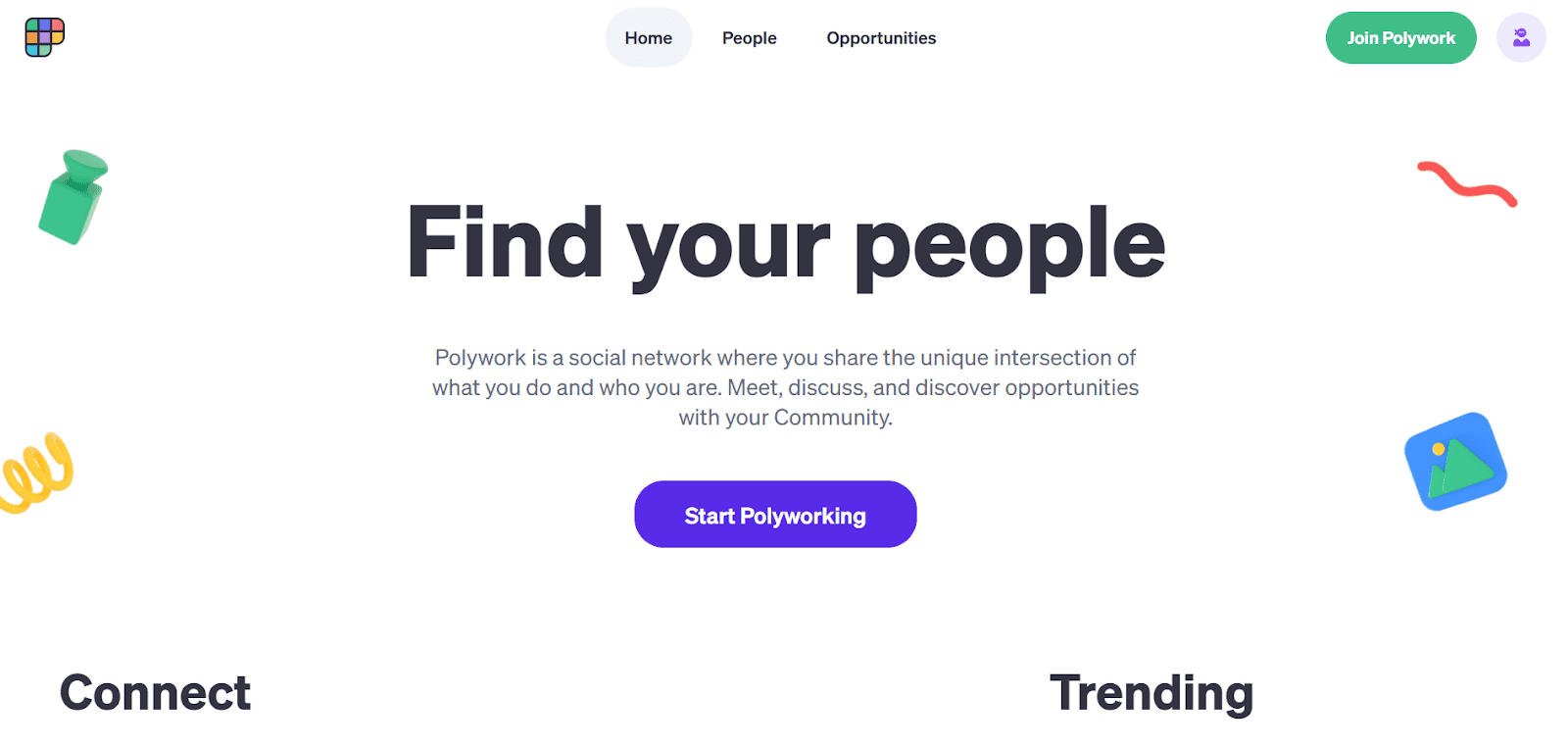
Source: Polywork.com
Quick question, what’s the first name that pops in your mind when we ask you about a social networking platform for the business niche? Chances are, you’ve thought of LinkedIn, right? LinkedIn has been around since 2002 and has set its bar far beyond competitors. To try and change things around, Polywork has jumped into action.
Being as new as only a year old, Polywork has seen a decent amount of following. Users here can add/highlight multiple skills and projects they excel at to their profile. This is a big difference from LinkedIn and even appeals more to the newer generations, where possessing more than one skill is slowly becoming a trend.
Not only this, but Polywork also enables users to connect to other like-minded individuals with the same skill sets to work on projects together. Further, users can determine what kind of service they’re willing to offer and be contacted for. This helps them gain professional opportunities.

Alt text: Man sitting on desk with laptop, phone, glasses, pen and book.
Source: Ruxipen
The most exciting part about Polywork is that it does not display any follower count or have a like button for that matter either. At most, people can only favorite your posts (called activities on Polywork), and the only one who can view the number of favorites is you!
There is no need to be immensely competitive on Polywork, which is a good reason why the youth find it attractive. While the overall site may not be as popular as LinkedIn or even have the same appeal, it’s something to keep an eye out for.
Key Features:
- Allows multi-skilled individuals to connect.
- No ‘like’ buttons, removing the idea of competing.
- Polywork helps talented people get exposure to professional opportunities.
- Users can leverage an inbuilt chat tool once they accept a communication offer.
#6 EyeEm
The last platform up on the list is EyeEm, a site for posting royalty-free images. Now before you roll your eyes over, know that this site isn’t just about professional photographers uploading images for people to use online.
In fact, anyone who is into photography can get in on the fun. You’re also free to connect with other professionals, learn and gain more exposure via social media marketing. It’s a simple platform for those who love photography and assists them in monetizing their content correctly.
Key Features:
- You don’t need to be a professional to upload photos.
- Helps you connect with other experienced people.
- Assists in monetizing your content.
The Future of Social Media Platforms
As we advance to the future, we establish modern technologies which re-shape predecessor models or overcome them completely. An example is the Chinese app TikTok competing against big social media platforms like Instagram, Facebook, and especially YouTube. As a result, they have extended the video length to 10 minutes (an idea still in testing mode). However, this example shows us the stiff competition amongst various platforms to keep user engagement.
The same goes for other social network channels like Pinterest and Instagram, which constantly bring new features and updates. What is the reason, you may ask? Well, it is a visual platform. We know graphics, illustrations, and videos have better user responses than plain text. This means there will also be the emergence of several social visual channels in the coming days.
Quick Summary about Emerging Social Media Platforms
In a nutshell, social media platforms are restricted or limited today. Numerous other channels are slowly rising with the demand of users and prove that social media monopoly will continually change. Even though we have a remarkable number of users already on the internet, this number will again increase as the internet and phones will be more accessible than ever. With this, you will see that the world’s population cannot stick to just one platform and likes to explore different features.
